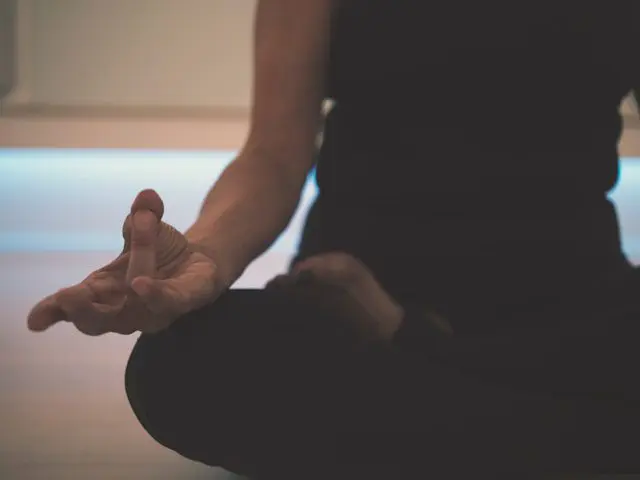Ever wondered why so many people swear by meditation? What if spending just a few quiet minutes each day could sharpen your focus, calm your body, and boost your mood? Meditation offers a simple, science‑backed path to better health and clearer thinking. In this post, we’ll explore 20 key benefits of meditation—from reducing stress and protecting your heart to sharpening your memory and slowing the aging process. Ready to discover how meditation can transform your life?

1. Lowers Stress
Meditation helps lower stress by training your mind to focus on the present moment. When you sit quietly and concentrate on your breathing, you calm your body’s fight‑or‑flight response. This practice triggers your relaxation system, slows your heart rate, and reduces stress hormones like cortisol. Over time, meditation builds a habit of noticing tension early and releasing it with a few deep breaths. As you practice regularly, you learn to face challenges with a steadier, more peaceful mind.
2. Improves Memory
Meditation strengthens memory by training you to focus on what matters most. When you steady your attention, you reinforce your brain’s ability to store and recall information. You learn to notice and dismiss distractions, which makes it easier to remember names, dates, and tasks. Regular practice increases connections in brain areas tied to memory, like the hippocampus. Over time, you recall details faster and with less effort. This boost helps you in school, at work, and in daily conversation.
3. Makes You More Self-Aware
Meditation boosts self-awareness by guiding you to observe your thoughts and emotions without judgment. When you quietly note inner reactions, you gain insight into your patterns and triggers. You learn to spot habits like negative self-talk or tension in your body. Over time, this practice helps you recognize feelings early and respond thoughtfully. You build a clearer sense of who you are and what you need. This deeper self-knowledge supports personal growth and everyday choices.
4. Makes You More Compassionate
Meditation deepens compassion by helping you connect with your own feelings and others’ experiences. When you practice loving‑kindness exercises, you send goodwill toward yourself and people around you. This habit trains you to notice when others struggle and to offer empathy rather than judgment. Over time, you develop a kinder attitude and respond with warmth. You learn to hold space for someone’s pain and celebrate their joy. This caring outlook strengthens bonds and brightens your community.
5. Helps You Make Better Decisions
Meditation guides you to clear your mind and see choices more clearly. When you pause and breathe, you reduce impulsive reactions and sharpen your inner voice. You learn to weigh pros and cons calmly, which prevents snap judgments. Regular practice gives you a mental space to consider values and long‑term impact. Over time, you trust yourself to pick paths that align with your goals. This clarity boosts confidence and daily decision-making.

6. Improves Relationships
Meditation improves relationships by making you more present and attentive with others. When you practice mindfulness, you learn to listen without planning your response or judgment. This habit builds trust and shows people they matter to you. You become less reactive in conflicts and more open to understanding different viewpoints. Over time, you offer patience instead of frustration and compassion instead of criticism. This shift deepens bonds and helps you enjoy more meaningful connections.
7. Slows Down Aging
Meditation slows down aging by reducing stress and inflammation in the body. When you calm your mind, you lower stress hormones that can harm cells over time. You encourage your body to repair and regenerate more effectively. Studies show that regular meditation preserves telomeres, the protective caps on DNA, which supports youthful health. Over time, you notice more energy, clearer skin, and a brighter outlook. This practice helps you age with strength and resilience.
8. Boosts Overall Well‑Being
Meditation boosts overall well‑being by balancing your mind and body. When you practice regularly, you build resilience to stress and increase positive feelings. You learn to tune into your needs, which supports better habits like healthy eating and gentle movement. Over time, you develop a sense of calm energy and purpose. You carry this feeling into daily life, which lifts your mood and motivation. This holistic boost helps you live with more joy and intention.
9. Supports Emotional Health
Meditation supports emotional health by helping you manage feelings like anger, sadness, and worry. When you notice your emotions without reacting, you gain a clearer view of what you feel. This practice builds emotional resilience, so you can face challenges without overwhelming stress. You learn to release tough feelings with gentle focus on your breath. Over time, you create a stable inner space that holds both good and bad emotions.
10. Helps with Addiction
Meditation helps with addiction by strengthening self-control and reducing cravings. When you bring mindful awareness to urges, you learn that cravings rise and fall like waves. You practice noticing these urges without acting on them. Over time, this habit builds a gap between impulse and action, giving you space to choose healthier responses. Meditation also reduces stress, a common trigger for addictive behaviors.

11. Works Almost Anywhere
Meditation works almost anywhere because you only need your mind and a few quiet moments. You can close your eyes on a busy bus, sit at your desk, or rest in bed. By focusing on your breath, you create a mental pause no matter the setting. Regular practice builds the habit of calm, so you can tap into it on a crowded street or before sleep. This flexibility makes meditation easy to fit into any routine.
12. Eases Anxiety and Depression
Meditation eases anxiety and depression by helping you observe negative thoughts without judgment. When you practice mindful breathing, you create a moment of calm that interrupts worry loops. You learn to label feelings like fear or sadness and let them pass, reducing their power. Over time, this habit reshapes brain pathways linked to mood, boosting emotional balance. You build a toolkit to face stress and low moods with grace.
13. Keeps You in the Present Moment
Meditation keeps you in the present moment by training your mind to focus on right now instead of worries about the past or future. When you anchor attention in your breath or body sensations, you build awareness of what is happening in real time. You notice sights, sounds, and feelings without rushing them. Over time, this practice helps you fully engage in tasks and conversations. You feel more alive and connected to life’s small joys in each moment.
14. Sharpens Focus
Meditation sharpens focus by strengthening your attention muscle. When you bring your mind back to a single point, like your breath, you train it to resist distraction. You build the skill to notice wandering thoughts and gently return to your chosen anchor. Over time, this repeated practice makes it easier to concentrate on work, study, or creative tasks. You notice you complete projects faster and with higher quality. This enhanced focus boosts efficiency and satisfaction in daily life.
15. Boosts the Immune System
Meditation boosts the immune system by lowering stress and enhancing immune cell activity. When you calm your mind, you reduce stress hormones like cortisol that weaken your defenses. You also increase positive signals that tell your body to fight off threats. Studies show that regular meditation raises levels of antibodies and immune cells that protect against infection. Over time, you notice fewer sick days and faster recovery.

16. Lowers Blood Pressure
Meditation lowers blood pressure by calming your nervous system and reducing tension in your body. When you focus on slow, deep breaths, you relax your blood vessels and slow your heart rate. You also reduce stress hormones that constrict your arteries. Regular practice creates a habit of calm that carries over into daily life, preventing spikes in blood pressure. Over time, this steady relaxation supports better circulation, which helps protect your heart and reduce other health risks.
17. Helps You Sleep Better
Meditation helps you sleep better by calming your mind and easing the transition to rest. When you practice before bed, you lower stress hormones and quiet racing thoughts. You train your body to relax deeply and let go of tension. Over time, this habit signals your nervous system to switch into sleep mode more easily. You find yourself falling asleep faster and waking less at night. This improved sleep leaves you more refreshed and alert each day.
18. Eases Pain
Meditation eases pain by changing how you experience discomfort in your body and mind. When you bring focused awareness to pain sensations, you learn to notice them without fear or resistance. You separate the physical feeling from the mental story of suffering. Over time, this practice reduces the intensity of pain signals. You build tolerance and feel less distress, even with chronic pain.
19. Protects Heart Health
Meditation protects heart health by lowering stress and strengthening circulation. When you breathe mindfully, you calm your body’s stress response and reduce blood pressure. You also encourage heart-rate variability, a sign of a healthy cardiovascular system. Over time, this practice helps clear harmful stress hormones that can lead to heart disease. You build a daily routine that supports strong blood vessels and a steady heartbeat. This heart‑healthy habit reduces long‑term risks and supports overall wellness.
20. Builds Gray Matter in the Brain
Meditation builds gray matter in the brain by stimulating growth in areas tied to learning and memory. When you practice focus and awareness, you increase blood flow and nutrient delivery to key regions like the prefrontal cortex. This supports the development of neurons and synapses, improving brain structure. Over time, you strengthen the parts of your brain that handle attention, emotional regulation, and self-control.

Ready to Start Your Meditation Journey?
Now that you’ve explored these 20 powerful benefits of meditation, take just a few minutes each day to press pause and breathe. Even a short, focused session can calm stress, sharpen your mind, and lift your mood. Stay consistent, notice small changes, and let mindfulness become your new habit. Your path to a calmer, stronger you begins with one simple breath.
More from Bananomad
- Enhance your practice with meditation cushions for back pain that provide comfort and support for better posture and alignment.
- See our guide to the best meditation books for beginners. Dive deeper into meditation with our curated list of essential reads.
- Discover how embracing sobriety can lead to mental clarity, financial freedom, and enhanced well-being.


Leave a Reply